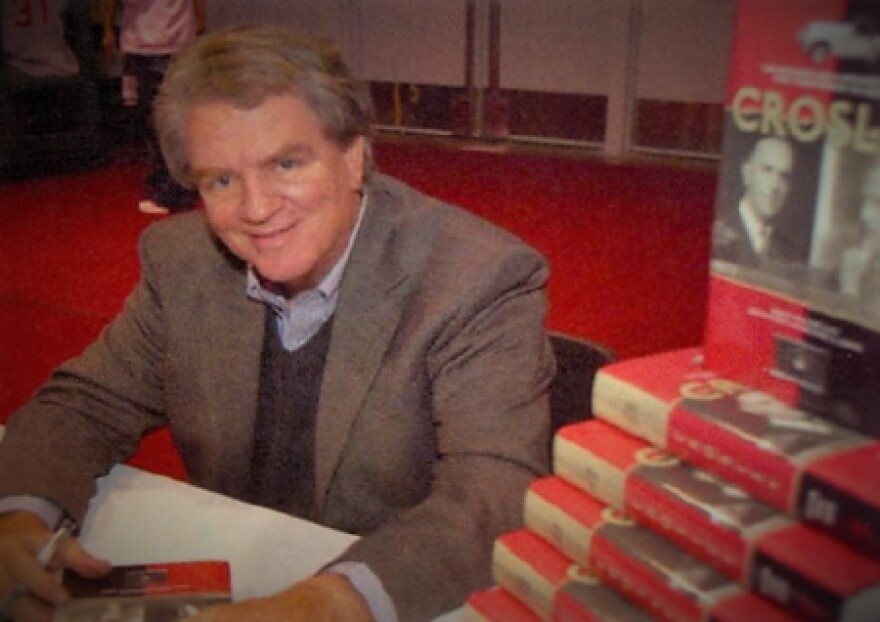Crosley historian and author Rusty McClure gives a uniquely personal look at Cincinnati's Crosley manufacturing and broadcasting empire Friday, Nov. 10, at the National Voice of America Museum of Broadcasting on Tylersville Road in West Chester Township.
McClure is the grandson of Lewis Crosley, who with his more famous brother Powel Jr., ran the companies which founded WLW-AM, and manufactured everything from radios and televisions to refrigerators, baby walkers, stoves, space heaters, snowmobiles, facsimile machines, phonograph players, ironing boards and the Crosley sub-compact car . (In 1941, Powel was the first to call his company's tiny station wagon a "sports utility vehicle.")

After hearing his grandfather's stories for years, McClure wrote the 2006 book, "Crosley: Two Brothers and a Business Empire that Transformed a Nation."
McClure will speak at 7:30 p.m. Nov. 10 Friday at the former VOA Bethany Station, 8070 Tylersville Road.
The $25 admission includes an autographed copy of the book and a visit to the new Crosley exhibit at the museum. On display are a Shelvador refrigerator (the first with built-in shelves), antique radios and TVs, the short-lived Xervac hair-growth machine, the Reado facsimile printer and the Icyball heat-based refrigeration systems.
"This is the first permanent Crosley display in Cincinnati, so this is really special," says McClure, a 1968 Mariemont High School graduate now living in suburban Columbus. He often attended Reds games with his grandfather at Crosley Field, which was renamed for Powel after Powel bought the Reds in 1934.
Of all the rare Crosley items displayed at the VOA, McClure was most moved by the old metal gates from Powel's 1928 Pinecroft mansion on Kipling Avenue in Mount Airy. The gates, with "PC" on each end (for Powel Crosley and Pinecroft), were rusting in a field behind the WLW-AM tower down Tylersville Road from the VOA, says Jack Dominic, museum director.
"The thing that brought tears to my eyes were the gates, because I went through them so many times as a kid. Who would think you'd see those Crosley gates in West Chester," says McClure, who attended the Crosley exhibit opening Sept. 23.

Among his other favorite items in the
--The short-lived Xervac machine (1937-40), a suction device marketed to balding men. Crosley claimed it would stimulate blood flow and hair growth. McClure says the device developed from experiments with pressurized liquid to cure gangrene at old Holmes Hospital which "made hair grow on feet." The Xervac "never quite worked. But my grandfather had one, and used it every day," McClure says.
--The Icyball, a heat-based refrigeration system which didn't require electricity. It was marketed to rural or small towns, summer camps or roadside stands – and is still used in the tropics today.
--The Go-Bibi (Go-bye-bye) walker for toddlers was made from scrap wood pieces at Crosley's Northside plant. It was the prototype for the popular Taylor Tot Scooter walker.
Tickets for McClure's Nov. 10 lecture are payable at the door. Or reservations can be made by calling the VOA at (513) 777-0027 or emailing admin@voamuseum.org.
McClure also will be at the museum 1-4 p.m. Saturday, Nov. 11 to sign books ($15) and discuss the Crosley brothers.
The is now open 1 4 p.m. every Saturday and Sunday. Admission is $5 for adults and $1 for children.




